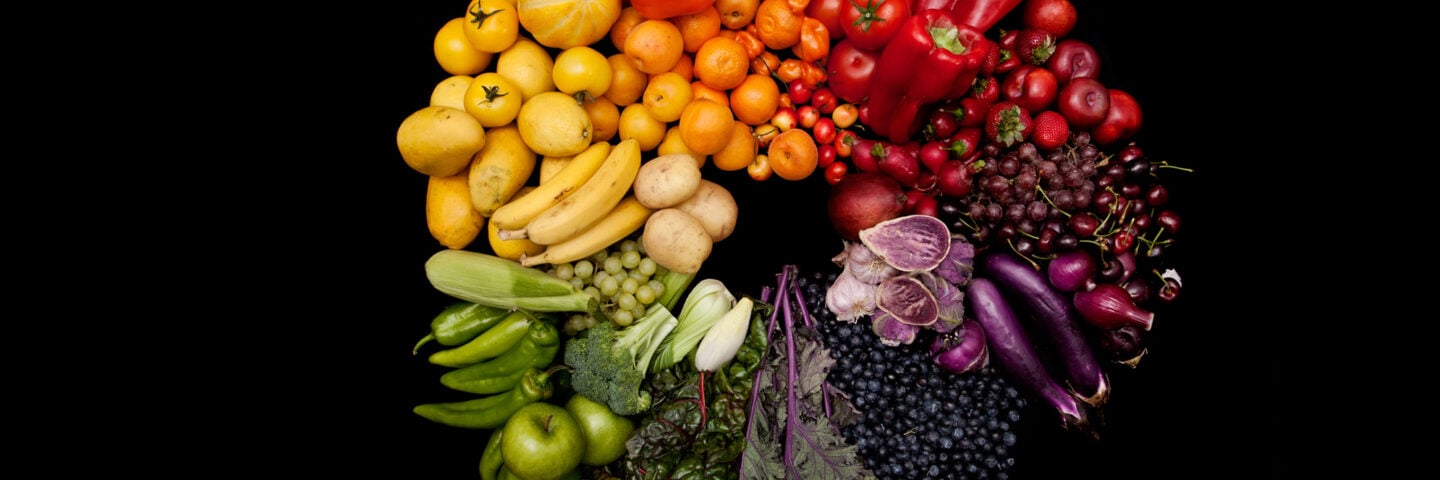
What Are Phytonutrients?
Answer
Phytonutrients … polyphenols … antioxidants … what do all of these terms mean?
The term phytonutrients is a broad name for a wide variety of compounds produced by plants. They’re found in fruits, vegetables, beans, grains, and other plants. Each phytonutrient comes from a variety of different plant sources and has different proposed effects on, and benefits for, the body. Some researchers estimate there are up to 4,000 phytonutrients! Scientists have identified thousands of them, although only a small fraction of phytonutrients have been studied closely.
Common Names for phytonutrients: antioxidants, flavonoids, phytochemicals, flavones, isoflavones, catechins, anthocyanidins, isothiocyanates, carotenoids, allyl sulfides, polyphenols
How Do You Get Phytonutrients?
Phytonutrients are found in plant foods (fruits, vegetables, beans, grains). By maintaining a balanced eating pattern that includes different forms and colors of fruits and vegetables, you’ll provide your body with a wide variety of all beneficial compounds, including phytonutrients! So, enjoy your fruits and veggies during every eating occasion … just fill half your plate with them and leave the rest for grains and protein.
The Health Benefits of Phytonutrients
New experimental studies are emerging that demonstrate multiple effects of fruits and vegetables (and their phytonutrients), suggesting that they may have an even greater role to play in human health than the already positive results seen to date.
Top 6 Phytonutrients You May Know About
 |
||||||
| Phytonutrient |  |
Proposed Benefits |  |
Food Sources |  |
Fun Facts |
 |
||||||
| Beta-Carotene |  |
Immune System Vision Skin Health Bone Health |
 |
Pumpkin Sweet Potato Carrots Winter Squash Cantaloupe Apricots Spinach Collard Greens Kale Broccoli |
 |
Think orange and dark, leafy green veggies |
 |
||||||
| Lycopene |  |
Cancer (Prostate) Heart Health |
 |
Tomatoes Pink Grapefruit Red Peppers Watermelon Tomato Products |
 |
The heating process makes lycopene easier for the body to absorb |
 |
||||||
| Lutein |  |
Eye Health Cancer Heart Health |
 |
Collard Greens Kale Spinach Broccoli Brussels Sprouts Lettuces Artichokes |
 |
This phytonutrient is found in the macula of the eye |
 |
||||||
| Resveratrol |  |
Heart Health Cancer Lung Health Inflammation |
 |
Red Wine Peanuts Grapes |
 |
1 cup of red grapes can have up to 1.25 mg of resveratrol¹ |
 |
||||||
| Anthocyanidins |  |
Blood Vessel Health |  |
Blueberries Blackberries Plums Cranberries Raspberries Red Onions Red Potatoes Red Radishes Strawberries |
 |
Think red and purple berries |
 |
||||||
| Isoflavones |  |
Menopause Cancer (Breast) Bone Health Joint Inflammation Lower Cholesterol |
 |
Soybeans |  |
½ cup of boiled soybeans offers 47 mg of isoflavones² |


